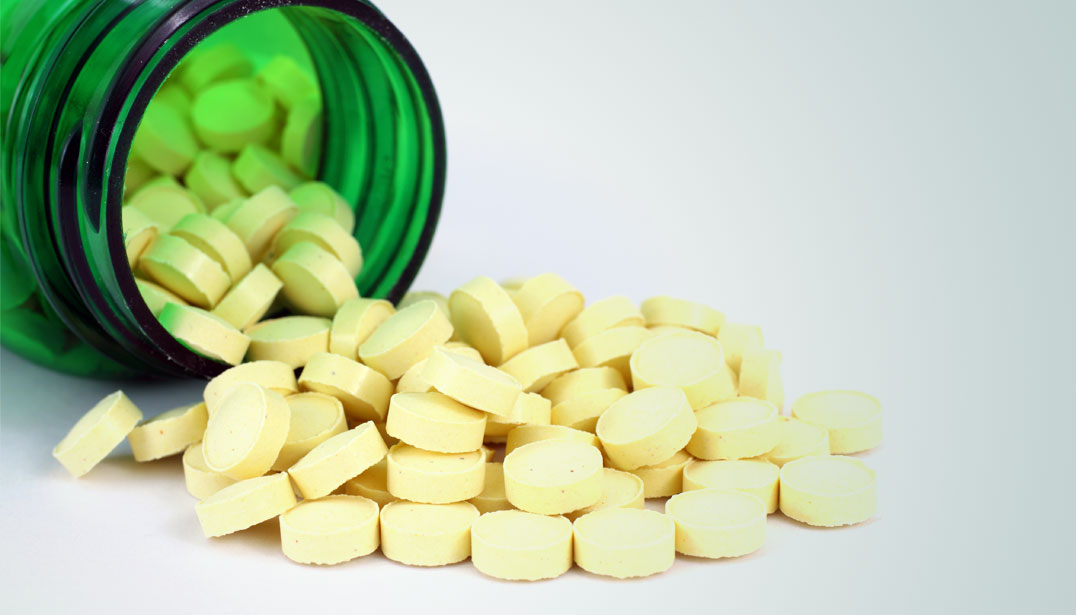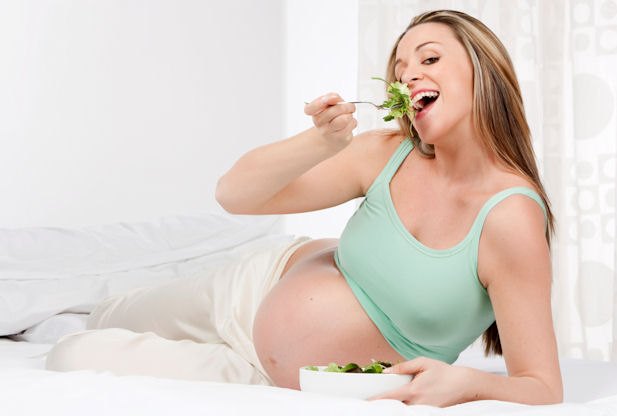Folic acid is a B vitamin (vitamin B9). It occurs naturally, in the form of folate in foods such as dark green leafy vegetables, oranges, wholegrains and pulses (dals).
Why do I need folic acid during pregnancy?
Folic acid helps to protect your unborn baby from developing neural tube defects such as spina bifida. Folic acid may also help to prevent other birth defects, such as a cleft palate.
Folic acid is good for you, too, as it works with vitamin B12 to form healthy red blood cells. Not having enough folic acid can cause you to have a type of anaemia. The other, more common type of anaemia, is due to a lack of iron.
How much folic acid do I need during pregnancy?
If you are thinking about pregnancy or in the first trimester of pregnancy, you are advised to take a daily supplement of 5mg of folic acid and eat a diet rich in folates. This will help protect your baby from birth defects, and reduce your risk of miscarriage.
You should start taking a folic acid supplement as soon as you decide to try for a baby, up to three months before you conceive. Carry on taking it (along with iron supplements) throughout pregnancy and for the first six months of breastfeeding.
If you have had a child with a NTD, your doctor may prescribe a much higher daily dose of folic acid. This is because you are at greater risk of having further children with a NTD.

If you are taking certain prescribed medicines, such as for epilepsy, your doctor may prescribe a higher dose of folic acid. That's because these medicines may prevent your body form absorbing folic acid. Talk to your doctor if you have epilepsy and are trying for a baby.
If you are overweight and have a body mass index (BMI) of over 25, or if you have diabetes, your doctor may prescribe a higher dose.
If you are overweight and/or have diabetes, it increases the risk of you having a baby with an NTD. Women with a higher BMI tend to have lower levels of folate in their blood. So ask your doctor for advice as soon as you decide to try for a baby.
It's good to eat as much folate-rich food as you can. But even if you eat a balanced diet, it's hard to get the amount you need from your food. This is why doctors recommend taking a supplement. The risk to your baby from folic acid deficiency is much greater than any inconvenience you might feel in taking a supplement.
Which foods contain the most folic acid?
It's a good idea to eat foods rich in folate as well as taking folic acid supplements to make sure you're getting the recommended amount. These foods will be packed with all sorts of other nutrients as well that are good for you and your baby.
Here are some foods with lots of folate for you to try:
1. a large orange (santara) - 54mcg of folate
2. a large hard-boiled egg - 22mcg
3. a medium ripe papaya (papita) - 115mcg
4. 1/2 cup of chickpeas (chhole) - 140mcg
5. 1/2 cup of cooked spinach (paalak) - 130mcg
6. 3/4 cup of cooked white rice - 60mcg
7. 1 cup of tomato (tamatar) juice - 50mcg
8. 1/2 cup of lentils, cooked - 175mcg
9. 1 cup of noodles, cooked - 160mcg
10. four tablespoons of black-eyed beans (lobhia) - 220mcg
11. 1/2 cup of kidney beans (rajma) - 115mcg
12. seven tablespoons of bran flakes - 113mcg
13. 25g of wheat germ - 100mcg
14. two spears of steamed broccoli (hari gobhi)- 61mcg
15. a large jacket potato (aloo) - 39mcg
How will I know if I have a folic acid deficiency?
Folate-deficiency anaemia and iron-deficiency anaemia can have similar symptoms of fatigue and weakness. A mild folate deficiency may also leave you grumpy or edgy.
You could also have digestive disorders such as diarrhoea, loss of appetite, weight loss, sore tongue, headaches, heart palpitations, irritability, forgetfulness or other behavioural disorders.
Many of these symptoms are general and could be caused by other medical conditions. If you have any concerns about your health and your diet, speak to your doctor, who may refer you to a dietitian.








